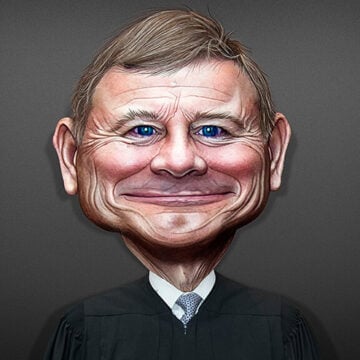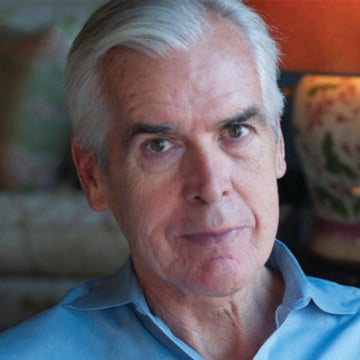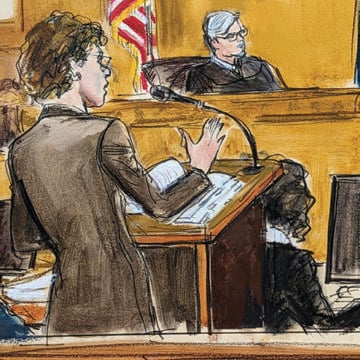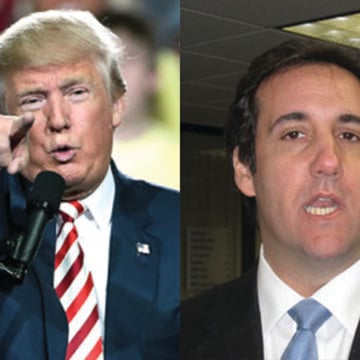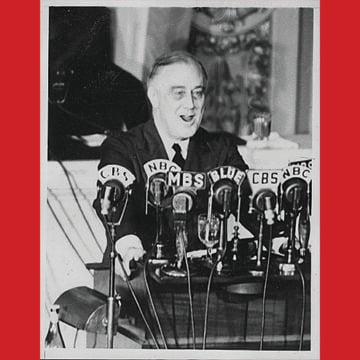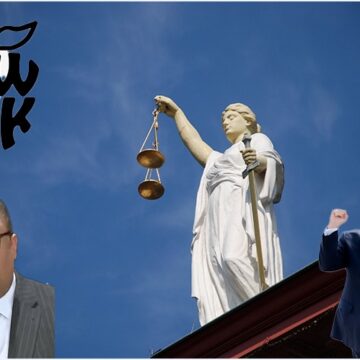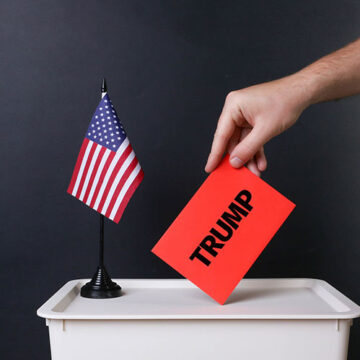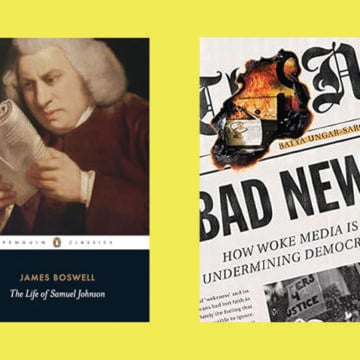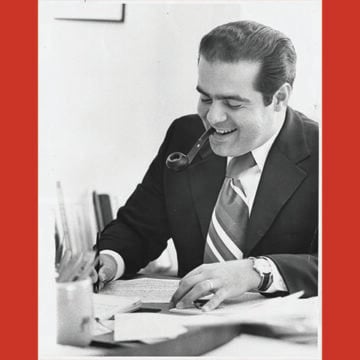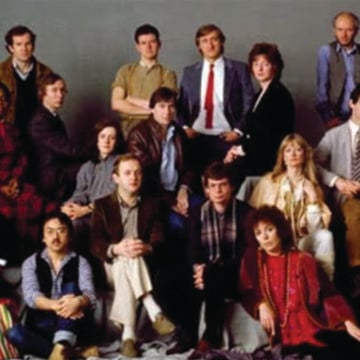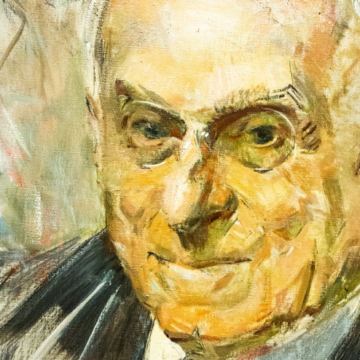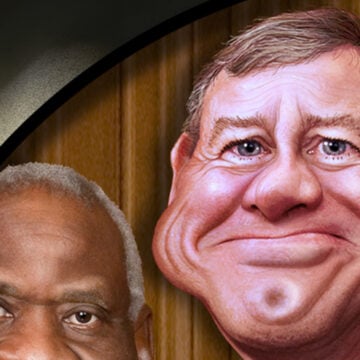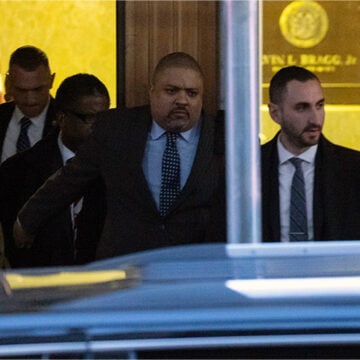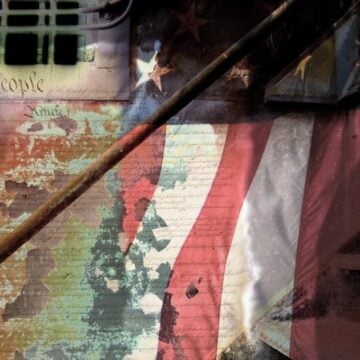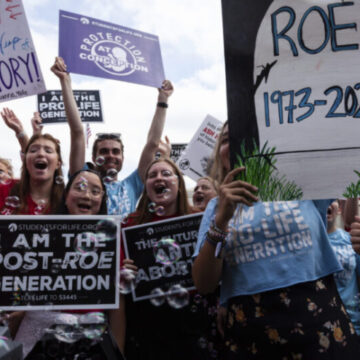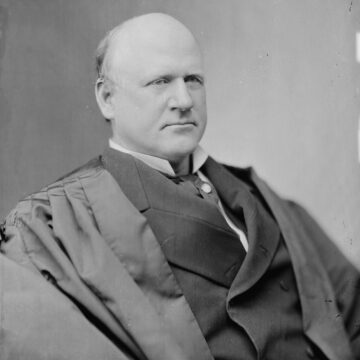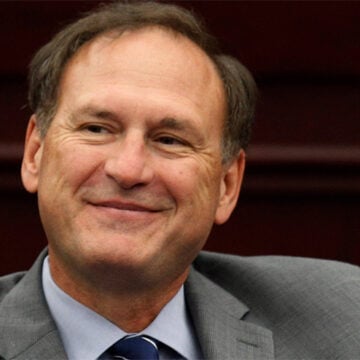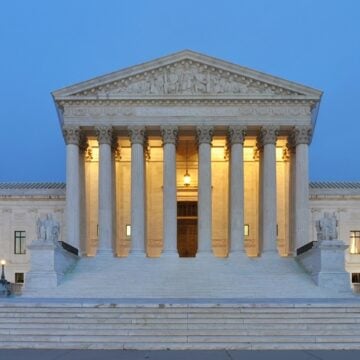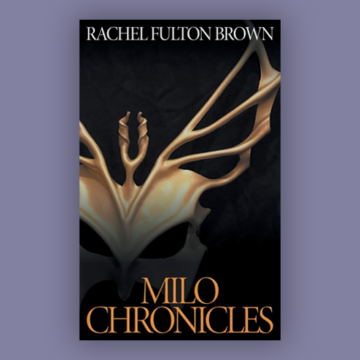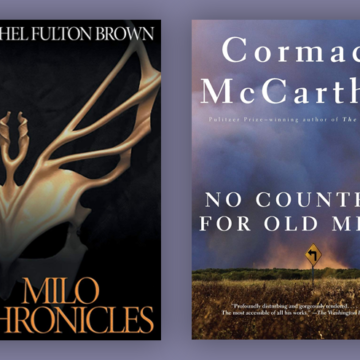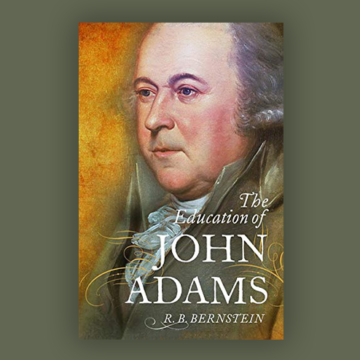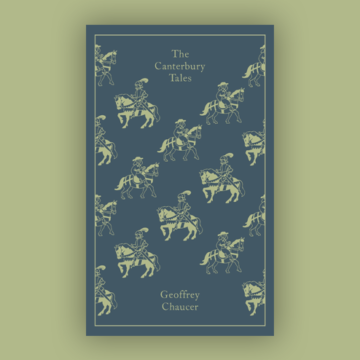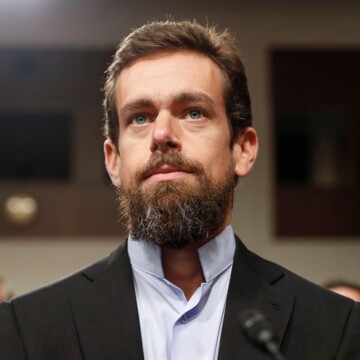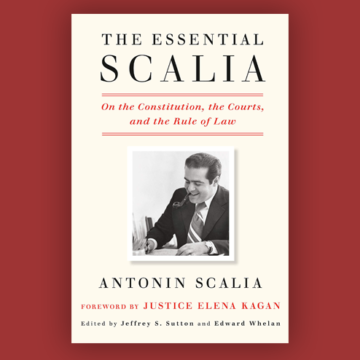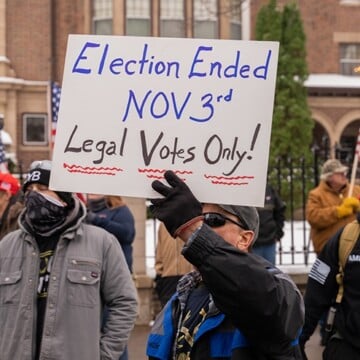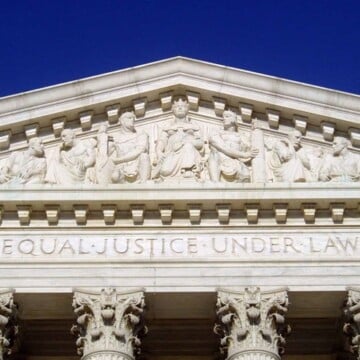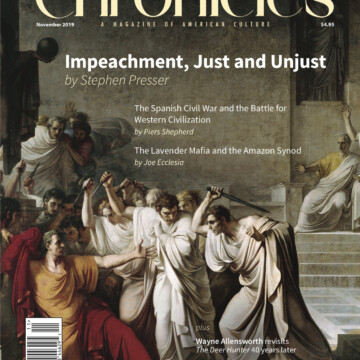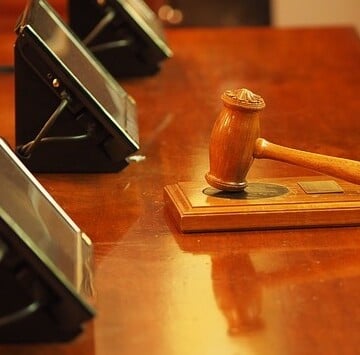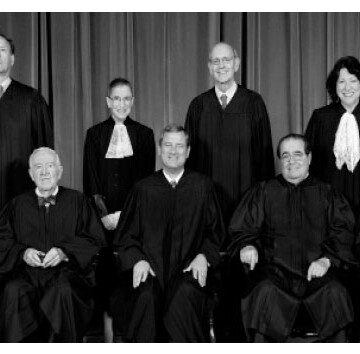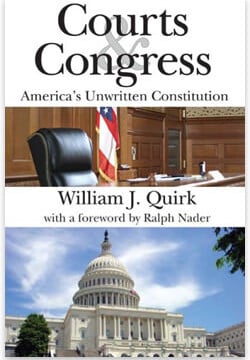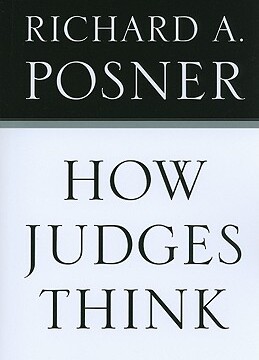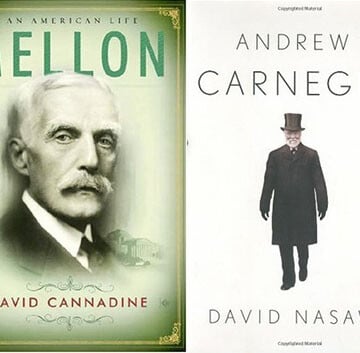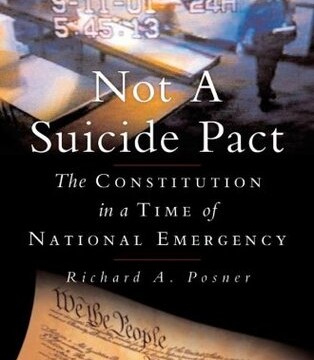A showdown between the White House and courts over “impoundment” will determine the fate of the republic.
Author: Stephen B. Presser (Stephen B. Presser)
The Stable Genius Providentially Triumphs
Trump’s overwhelming victory appears to confirm his genius, the wisdom of the American people, and God’s Providence for our country.
Whose is the Wrong Rally?
By telling people shouting “Jesus Is Lord” that they didn’t belong at her rally, Kamala Harris demonstrated the deep divide over religion between the parties.
Son of Tocqueville, Socrates, and Holmes
If Alexis de Tocqueville, Socrates, and Oliver Wendell Holmes, Jr., could be combined, such a person would be like Philip Howard. His Everyday Freedom is a well-timed neo-Tocquevillian polemic.
The Rule of Lawfare
Lawfare is the manipulation of the legal system to get Donald Trump. But more broadly, it's the use of existing law, in a manner not intended by its framers, to neutralize or destroy enemies of those in power.
A Prayer for the Defeat of Lawfare
There are currently four lawfare battles against Donald Trump. Not just the former president, but the rule of law itself is on trial in these proceedings.
The New Deal Paved the Way for Today’s Jan. 6 Prosecutions
David Beito’s account of American concentration camps, wartime censorship, mass surveillance, and misuse of executive agencies for partisan political purposes further impugns the claim that FDR was a man of virtue.
The Rule of Law No Longer Reigns in New York
There was a time when the Big Apple was undoubtedly the legal capital of the country and an exciting and wonderful place to visit. That is no more.
Two Cheers for the United States Supreme Court
Monday’s decision was a movement in support of the rule of law over and against lawfare and the rule of unhinged partisan power.
What We Are Reading: February 2024
Short reviews of The Life of Samuel Johnson, by James Boswell, and How Woke Media Is Undermining Democracy, by Batya Ungar-Sargon.
Scalia Gets the Biography He Deserves
James Rosen’s biography shows Justice Scalia’s greatness in bucking the prevailing liberalism of the Supreme Court.
A Deeper Thing Than Love
A. N. Wilson is extraordinary at discussing the faith of his many friends and acquaintances, and the religious odyssey that he presents is a joyful and hopeful one.
What We Are Reading: September 2023
Short reviews of Middlemarch, by George Eliot, and Shane, by Jack Schaefer.
Rehabilitating Felix Frankfurter
American law school faculty is often given to unwise and thoughtless hero worship, to which even Felix Frankfurter occasionally succumbed.
Roberts Left a Loophole in the Affirmative Action Decision
Chief Justice John Roberts' rejection of the racial discrimination of affirmative action is one of his greatest Supreme Court rulings. But unfortunately he left in a giant loophole that will allow colleges to continue to privilege blacks and Hispanics over Asians and whites.
The Trump Indictment and the Triumph of Critical Legal Studies
The indictment of Donald Trump marks the ascendancy of a progressive legal theory that argues all law is merely politics, and makes the courts into a battlefield for political campaigns.
Defense of the American Vision
Gordon Wood shows how far we have drifted from the Founding Fathers' vision of a polity that would limit arbitrary power in order that the government might serve the people rather than tyrannize them.
Overturn!
The overruling of Roe is the greatest triumph to date of the conservative legal movement. The Court had no business inventing a constitutional right to abortion.
Overturning Roe: A Conservative Legal Triumph and Return to Common Sense
The overruling of Roe v. Wade is a momentous achievement of the conservative legal movement and an act of great courage. The blowback will be fierce, but America is beginning to see a rebirth of the rule of law.
Justice Harlan’s Color-Blind Dissent
Supreme Court Justice John Harlan helped to shape the “color-blind” legal approach toward race in America, and his views were likely shaped by a man likely to have been his mixed-race half-brother.
The Supreme Court Leaks Common Sense: Justice Alito’s Splendid Opinion
If Justice Alito’s mysteriously leaked draft opinion on the Dobbs case becomes official, it will overrule a whole line of dubiously reasoned federal abortion cases and will be the greatest victory for sensible jurisprudence in at least five decades.
The Struggle for the Soul of the Supreme Court
During Joe Biden’s 2020 campaign for president, when his fortunes were at their nadir, Joe Biden promised that he would nominate the first black woman to the United States Supreme Court. He reportedly made this pledge to James Clyburn (D-S.C.), the powerful African-American congressman, in return for Clyburn’s help in securing the black vote in...
What We Are Reading: February 2022
What makes a great novelist? Genius—the ability to see connections hidden from most of us—obviously helps, but if great novels are great commentaries on the human condition, then living in a rich, stimulating, and challenging environment may also be essential. A.N. Wilson’s brilliantly unorthodox literary biography of Iris Murdoch—perhaps the greatest novelist writing in...
The Surveillance State Turns Twenty
Fifty-three years ago, in the fall of 1968, I was among a gaggle of idealistic first-year students sitting in a classroom at the Harvard Law School, where a crusty old professor advised us to study international law. In that discipline, “the dew was still on the grass,” he said. In those days, when many budding...
What We Are Reading: Milo Chronicles
This extraordinary tome proposes a cure for our cultural illness: the resurgence of the muscular Christianity that once permeated higher education. The success of Fulton Brown’s project is far from assured, but in this essay collection she embraces the task with zealous ecstasy. The book is ostensibly the story of the author’s unlikely relationship with Milo...
What We Are Reading: July 2021
This extraordinary tome proposes a cure for our cultural illness: the resurgence of the muscular Christianity that once permeated higher education. The success of Fulton Brown’s project is far from assured, but in this essay collection she embraces the task with zealous ecstasy. The book is ostensibly the story of the author’s unlikely relationship with...
The Unfashionable Adams Legacy
The Education of John Adams; by R. B. Bernstein; Oxford University Press; 368 pp., $24.95 It is not fashionable these days to admire the Founding Fathers, and yet the flood of books, articles, and even Broadway musicals devoted to them has not ceased. Attention is usually focused on George Washington, Benjamin Franklin, Thomas Jeff erson,...
What the Editors are Reading: The Canterbury Tales
Before William Shakespeare there was Geoffrey Chaucer. The Bard borrowed at least one of his plots from his predecessor (“The Two Noble Kinsmen,” was based on the “Knight’s Tale”). Both English greats were, it could be said, refashioning Homer’s Shield of Achilles as they painted elaborate portraits of their entire societies, from the lowliest corners to...
Arbitrary Power
Is it still possible to believe that the rule of law prevails in the United States of America? That concept—that we are governed by our laws and Constitution, and not the arbitrary power of dominant individuals or groups—is endangered as never before, especially after the 2020 presidential election, the loss of two Republican Senate seats...
The Court’s Own Critic
The Essential Scalia: On the Constitution, the Courts, and the Rule of Law; By Antonin Scalia; Edited by Jeffrey S. Sutton and Edward Whelan; Foreword by Justice Elena Kagan; Crown Forum; 368 pp., $35.00 Steven Calabresi, one of the founders of the Federalist Society for Law and Public Policy Studies, maintains that Antonin Scalia was the greatest justice ever...
How to Restore Faith in the Constitution
In one of the most extraordinary passages of his most extraordinary book, C.S. Lewis, the 20th century’s greatest Christian apologist, wrote of Jesus Christ, that he was either the son of God, as he claimed, or a madman. In the Christmas season, believers take comfort in their faith and joyfully embrace the first alternative. The...
Considering Judge Barrett
In one of the most important acts of his Presidency, on Sept. 26, 2020, Donald J. Trump announced his pick to fill the United States Supreme Court vacancy created by the death of Ruth Bader Ginsburg: Amy Coney Barrett. The Supreme Court has recently been divided 4-4 in terms of judicial philosophy, with Justices Ginsburg, Stephen...
Put Not Your Faith in Judges
Are there Bush judges and Obama judges? “No!” said the Chief Justice of the United States Supreme Court, John Roberts. Judges, he explained during his Senate confirmation hearings, are simply umpires, objectively attempting to follow the rules and call balls and strikes. The chief, let us say, was not being candid. Since 1881, when Oliver Wendell...
Impeachment, Just and Unjust
What exactly did the framers mean by putting in the Constitution Article II, Section 4? This is the section that reads, “The President, Vice President and all civil Officers of the United States, shall be removed from Office on Impeachment for, and Conviction of, Treason, Bribery, or other high Crimes and Misdemeanors.” Treason is clearly...
Rethinking Big Tech’s Legal Immunity
Should Facebook, Google, Twitter, YouTube, Instagram or other purveyors of internet content be liable for damages if they fail to ensure that what they disseminate is not inaccurate, libelous, or otherwise dangerous and pernicious? There is a bit of law on this, but we are only now beginning seriously to consider this question. And only...
Jefferson’s Cousin
From the June 2002 issue of Chronicles. There are probably more judicial biographies of Supreme Court Chief Justice John Marshall than of all the rest of the Supreme Court justices combined, so why another one? R. Kent Newmyer, historian and law professor at the University of Connecticut School of Law, undertook to write a work...
The People Knew What Was At Stake
This is an extraordinarily great day for those of us who believe in the rule of law, separation of powers, and federalism. We in the academy, in particular, were constantly told that in the 21st century there was no place for the traditionally conservative ideas of adherence to the original understanding of the Constitution, in...
Donald Trump, the Court, and the Law
Is Donald Trump a Burkean? Would Russell Kirk vote for him for president? Can a paleoconservative legal scholar imagine any benefit to a Trump presidency? Of course, the neoconservatives are piling on Trump. Most notable was National Review’s January 21 issue, “Against Trump.” “Trump,” say the editors, “is a philosophically unmoored political opportunist who would...
SCOTUS: What to Watch in 2016
Hope, as they say, springs eternal. Lately, those of us who believe in the rule of law and an objective interpretation of the Constitution according to the original understanding of those who framed it (and the people’s representatives who ratified it) have been dealt some cruel blows. The two most prominent are the Supreme Court’s...
After Obergefell: What Now?
I have previously suggested in these pages that the Supreme Court’s recent decision in Obergefell v. Hodges—the five-to-four decision which declared that two Americans of the same sex have a constitutionally guaranteed right to marry each other—may be the worst in the history of the Court. First, there was no adequate legal or constitutional basis...
The Worst Decision
Law professors like to debate among themselves which of the U.S. Supreme Court’s many opinions is the very worst. There has been a general consensus that the most loathsome is the one in Dred Scott v. Sandford (1857), in which the Court decided that the right to hold slaves in the territories was a “fundamental...
Government-Managed Business
“The business of America is business,” said Calvin Coolidge, a few years before the Great Depression. In the worst economic downturn since then, Barack Obama won the White House after a campaign in which he made it clear, to what might be described as populist delight, that he was not a friend to corporations. In...
Reviewing Judicial Review: A Government of Justices
In the most famous defense of the U.S. Supreme Court’s power to declare acts of the federal and state legislatures unconstitutional, Alexander Hamilton argued that it was the Court’s job only to implement the will of the people as expressed in the Constitution. If the Court went beyond that—interpreting the document to include things that...
Strippers to the Rescue
“Courts of justice cautiously abstain from deciding more than what the immediate point submitted to their consideration requires.” —Mr. Justice Nicholl In what was probably the most laudable achievement of his administration, President George W. Bush placed on the Supreme Court two justices, Chief Justice John Roberts and Associate Justice Samuel Alito, who believe...
How Posner Thinks
“The law is good, if a man use it lawfully.” —1 Timothy 1:8 Richard Posner is one of the greatest judges never to have sat on the Supreme Court of the United States. A distinguished professor at the University of Chicago, a judge on the U.S. Court of Appeals for the 7th Circuit for 25...
Guantanamo Supreme
Do suspected Al Qaeda terrorists captured in Afghanistan and taken to the U.S.-operated prison at our naval base at Guantanamo Bay, Cuba, have a right guaranteed by the U.S. Constitution to contest their detention in the U.S. civilian courts? According to five members of the U.S. Supreme Court, who agreed with an opinion by Justice...
Two American Lives
“Whatsoever thy hand findeth to do, do it with thy might.” —Ecclesiastes 9:10 The Gilded Age still exerts a strange pull on the American imagination. It was a time of larger-than-life people and larger-than-life business entities. It featured conspicuous consumption—including palatial mansions, yachts, international travel, and international scandal—that seems almost to exceed anything we have...
A 60-Year-Old Error
Since the days of Earl Warren, the U.S. Supreme Court has engaged in a lot of freewheeling jurisprudence: the decision granting Washington the power to dictate when and how police may apprehend criminal suspects; the declaration that the racial integration of America’s public schools is a matter of federal, rather than state, law; the ukase...
The Guantanamo Question
Who should determine whether alien enemy combatants captured in Iraq and Afghanistan are properly in the custody of the U.S. government at the U.S. Naval Station at Guantanamo Bay? The President and Congress have set up special military tribunals to make such determinations, but some federal judges and some critics of President George W. Bush...
No Longer a Constitution?
What is the relationship between the U.S. Constitution and the current struggle against the perpetrators of jihad against the West? Should the masterminds of, and participants in, the suicide bombings of September 11 and other terrorist acts be protected by the Bill of Rights and the Geneva Conventions? In several important decisions by the U.S....
